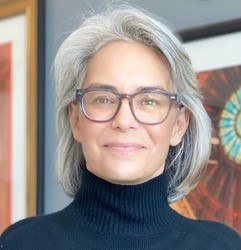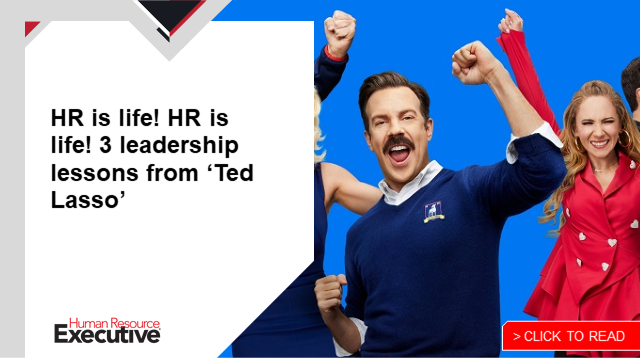It should come as no surprise that, at a global learning company, the development of skills and knowledge among employees is front and center.
That’s certainly the case at Pearson—which provides digital content and learning, supported by 20,000 employees across nearly 200 countries—and its new CHRO, Ali Bebo, is seeking to continue to deepen the company’s investment in employee learning and development, which she says is intrinsically tied to its purpose.
Bebo joined the organization at the end of last year after more than 20 years in HR leadership roles. Most recently, she was CHRO at med-tech firm Hologic and spent 15 years in HR at apparel brand Ann Inc. She recently spoke with HRE about her career and her plans for employee learning in her new role.
HRE: I saw you studied political science in college; what prompted the shift to HR?

Bebo: At its core, political science generally studies human relations in all aspects of life all over the world. It certainly sparked my curiosity around what influences our behavior within a given culture, society or government. So, why HR? Simply, it’s a platform for me to create the best human relations in the workplace. I love solving problems in the workplace. I am driven to create environments where human potential can be realized at work, ultimately impacting broader society.
Read more Insights from a CHRO here.
HRE: How do you think the pandemic has reshaped what’s expected of HR?
Bebo: HR’s demands have never been more significant to successfully steer companies through uncertainty and complexity throughout the pandemic. Enterprises are fundamentally pivoting to new business models, accelerating innovation and changing expectations of and [for] the workforce. Within the context of these disruptive forces changing how we live and work, HR needs to lean into an adaptive, flexible and agile operating model. I believe HR can be a source of innovation within any organization.
It requires we pivot as fast—if not faster—than the enterprise is pivoting. This is not often easy, as HR is often straddling the needs of today while planning for the needs of the future. However, the faster we shift from disproportionately favoring center-driven solutions anchored in rules and policies to decentralized solutions anchored in guiding principles, we can be freed up to position ourselves as trusted partners who build internal capabilities with speed where we are needed most.
HRE: Your work involves membership in Chief, an organization whose mission is to drive women to the top and keep them there. What do you think organizations should be doing today to combat the high percentage of talented women leaving the workforce?
Bebo: First, we need to know what’s on women’s minds, what they need and what they want. Pearson’s Global Learner Survey highlighted that eight out of 10 women are using the pandemic as an opportunity to reevaluate their lives and careers—with nearly half of women planning to change jobs or start working in the next six months. Women want flexibility in the workforce and may be taking their careers in their own hands, with one in five planning to be an entrepreneur. We learned nine in 10 women are looking for work and want to improve their professional skills.
As I digest these insights, it highlights women don’t see learning as something to get through but as a chance to have a breakthrough in their lives. Women want challenging, enriching experiences that will help them move forward and make an impact. Organizations need to think about their investment in professional skill development coupled with breakthrough career experiences for women that will open more doors faster—and remove all barriers to advancements such as “readiness ratings” in succession practices. With the disproportionate exit of women in the workforce, we can’t assume or expect women’s career trajectory will be the same as men’s.
See also: Your insider look at the upcoming Health & Benefits Leadership Conference
HRE: As you shape goals and priorities for the rest of 2022, what is emerging at the top?
 Bebo: In December 2021, I joined Pearson, as it is important for me to join a company with a meaningful purpose. Our purpose is to add life to a lifetime of learning. At the heart of what we do, we are making an impactful difference to society. For 2022, we are thinking about goals that reflect both our ambition and purpose and what’s important now to our consumers and employees. [This year,] when we accelerate growth, we drive sustainable value for our stakeholders, and importantly, we deliver our purpose to more learners. We do this through increasing the velocity of digital transformation through innovation. For our employees and consumers, we want to establish the brand of Pearson that is purpose-driven, experienced-based and powered by digital.
Bebo: In December 2021, I joined Pearson, as it is important for me to join a company with a meaningful purpose. Our purpose is to add life to a lifetime of learning. At the heart of what we do, we are making an impactful difference to society. For 2022, we are thinking about goals that reflect both our ambition and purpose and what’s important now to our consumers and employees. [This year,] when we accelerate growth, we drive sustainable value for our stakeholders, and importantly, we deliver our purpose to more learners. We do this through increasing the velocity of digital transformation through innovation. For our employees and consumers, we want to establish the brand of Pearson that is purpose-driven, experienced-based and powered by digital.
HRE: How does Pearson’s purpose align with the employee experience at the company?
Bebo: Our employees play an instrumental role in embodying purpose and see the work they do every day as meaningful. Our workplace experiences must reflect our purpose. At Pearson, we believe learning is no longer a stage of life; it’s a lifelong journey. We envision a future where everyone can realize the life they imagine through learning—learning is at the center of our employee experiences. It’s what we value and what we do. Offering challenging, enriching experiences—knowing it’s taking you forward and making an impact—is what we do for everyone.
Read more: Purpose, and learning, were among the themes that experts emphasized at HR Tech Virtual last week.

